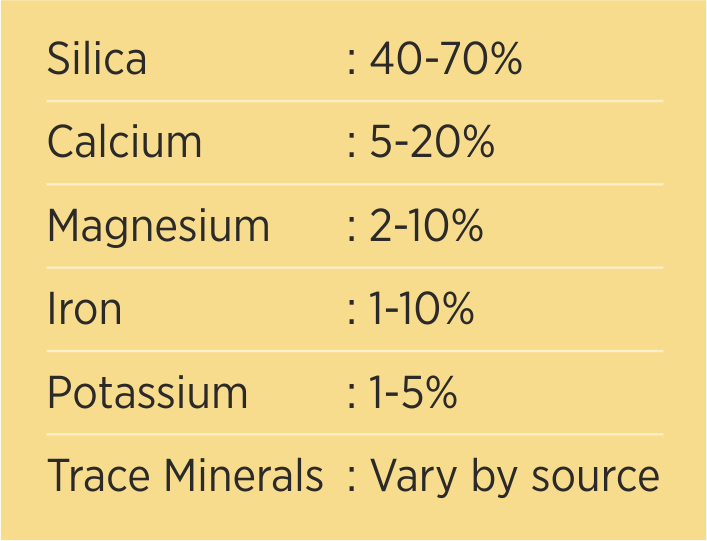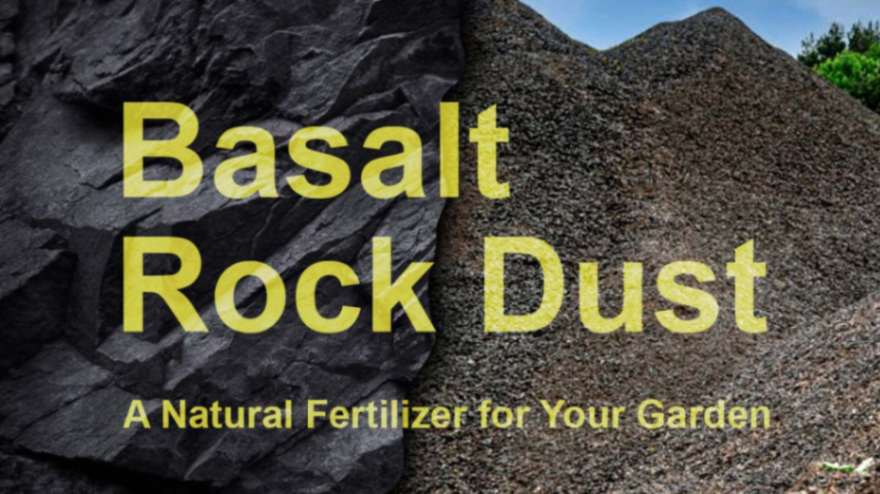Basalt rock dust is becoming increasingly popular as a great alternative to chemical fertilizers for gardeners and farmers who want to take better care of their crops and soil. Its unique mineral composition and numerous benefits for soil and plant health make it highly respected in the gardening and agriculture communities. Below is a comprehensive overview of basalt rock dust.
What Is Basalt Rock Dust?
Basalt rock dust is a specific type of volcanic rock dust that originates from basalt, an igneous rock that constitutes a significant portion of the Earth’s crust. This type of volcanic material is abundant in vital minerals such as potassium, calcium, magnesium and iron. When it is finely ground, it transforms into a powerful soil amendment that offers numerous benefits for plant growth.
Mineral Compositions
Basalt rock dust is rich in a variety of essential plant nutrients and trace minerals, including:
- Silica: Silica is crucial for strengthening cell walls, enhancing plant structure and improving resistance to environmental stressors.
- Calcium: Calcium is vital for root development, cell division and overall plant growth.
- Magnesium: Magnesium is a key component of chlorophyll which is essential for photosynthesis.
- Iron: Iron plays a critical role in chlorophyll production and oxygen transport within plants.
- Potassium: Potassium regulates water uptake, nutrient transport and various metabolic processes in plants.
- Trace Minerals: Basalt rock dust also contains trace minerals like zinc, copper and manganese which are essential for enzymatic reactions in plants.
Properties
Basalt rock dust is typically ground into fine particles with sizes ranging from a few microns to several millimeters. It often has a dark color ranging from black to deep brown and has a gritty texture.
Typical Analysis
The mineral composition of basalt rock dust can vary depending on the specific source rock but a typical analysis might include:

Basalt Rock Dust Benefits for Gardening
Basalt rock dust provides several advantages for gardening and agriculture:
- Improved Soil Fertility: Basalt rock dust enriches soil fertility by supplying essential nutrients and minerals. It helps balance soil pH and provides a continuous source of nutrients for plant uptake resulting in healthier and more productive plants.
- Enhanced Soil Structure: The fine particles in basalt rock dust can break up compacted soil, improve aeration and enhance water retention. This leads to better soil structure, root growth and overall plant health.
- Disease Resistance: Plants grown in basalt-amended soil often exhibit increased resistance to pests and diseases due to improved nutrient availability and strengthened cell walls.
- Heavy Metal Detoxification: Basalt rock dust can bind to heavy metals in the soil, reducing the risk of heavy metal toxicity in plants. This is particularly beneficial for gardens located in urban areas or areas with contaminated soils.
- Nutrient Density: Plants grown in basalt-amended soil tend to have higher nutrient content making the produce more nutritious for consumption.
- Sustainable Agriculture: Using basalt rock dust is considered an environmentally friendly practice as it utilizes a natural resource, reduces the need for synthetic fertilizers and promotes sustainable gardening and farming practices.
Conclusion
Basalt rock dust is a valuable soil amendment due to its unique mineral composition and numerous benefits for gardening and agriculture. It enhances soil fertility, improves soil structure, enhances plant health and disease resistance and can help detoxify soils contaminated with heavy metals. Gardening enthusiasts and farmers often incorporate basalt rock dust into their soil management strategies to promote healthier and more productive crops.
FAQs
Is Basalt Rock Dust safe for organic gardening?
Yes, Basalt Rock Dust is considered safe for organic gardening as it is a natural product with no synthetic chemicals.
Can Basalt Rock Dust be used for indoor plants?
Absolutely! Basalt Rock Dust can benefit indoor plants by enriching the potting soil with essential minerals.
How often should I apply Basalt Rock Dust?
For most plants, an annual application of Basalt Rock Dust is sufficient. However, you can apply it more frequently if needed.
Is Basalt Rock Dust environmentally friendly?
Yes, Basalt Rock Dust is an environmentally friendly choice, as it is a natural, sustainable resource.
Where can I purchase Basalt Rock Dust?
You can find Basalt Rock Dust at garden centers, online gardening stores or through local agricultural suppliers.
Also Read
Creative and Sustainable Use of Sawdust in Everyday Life

Leave a Reply